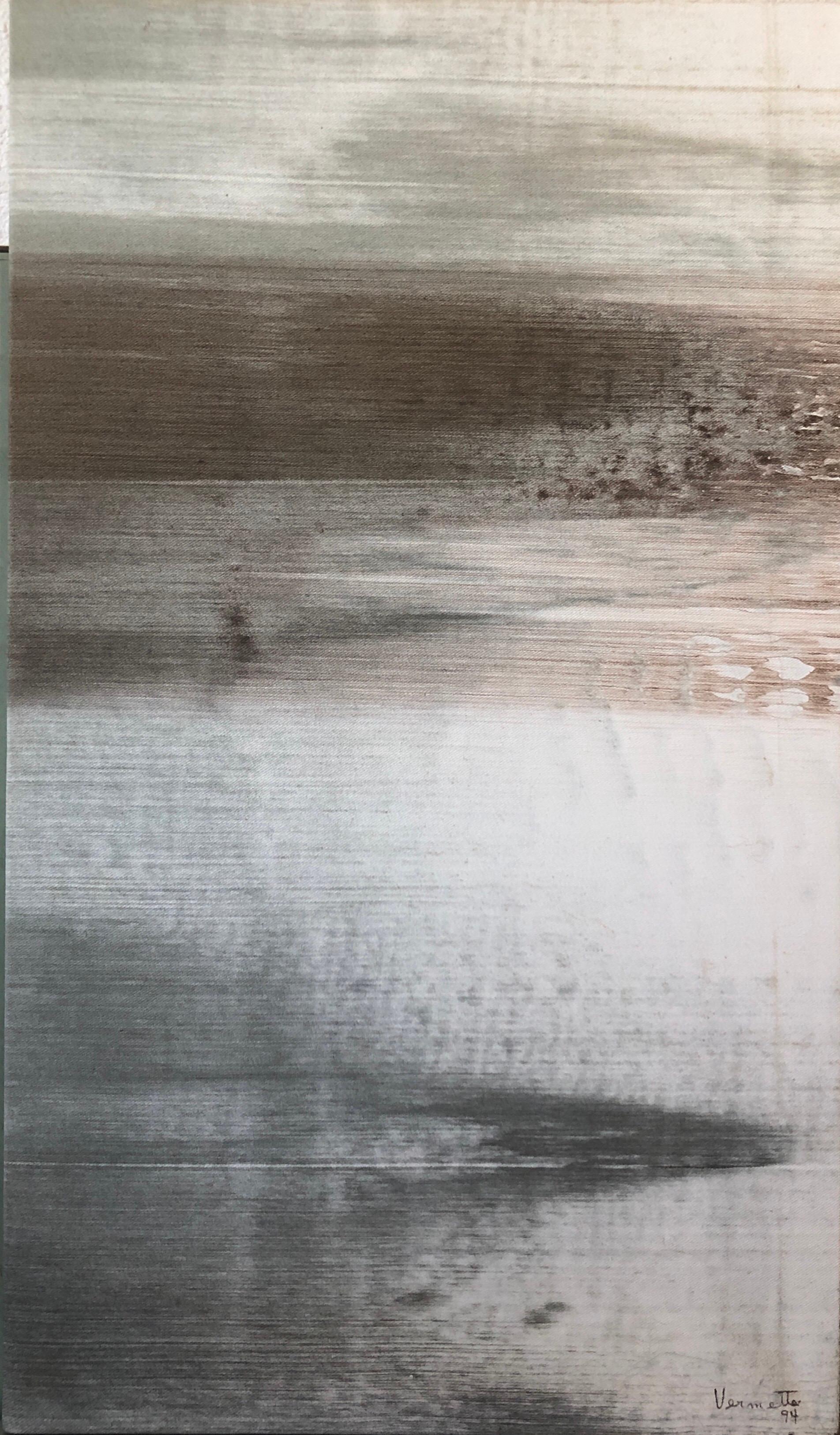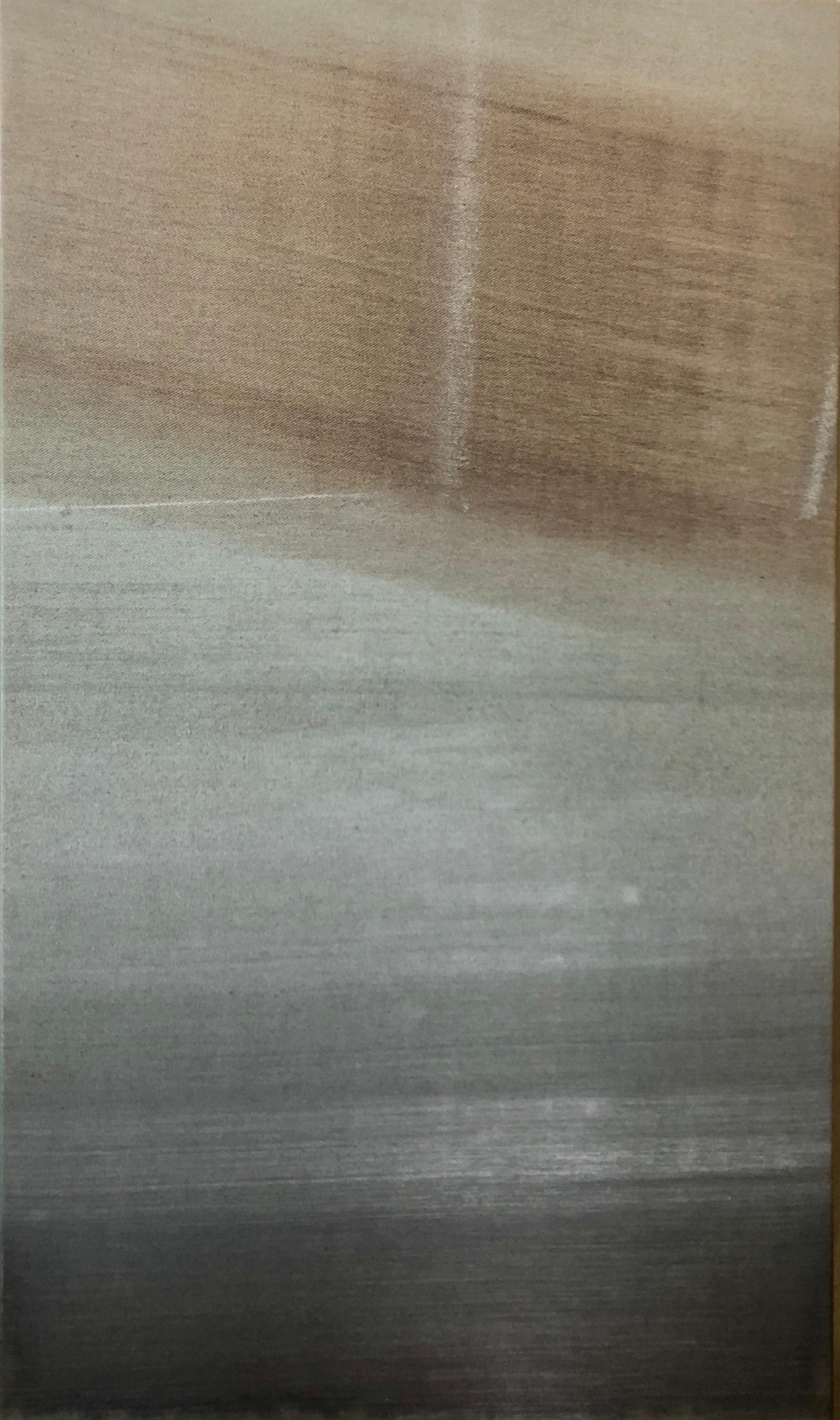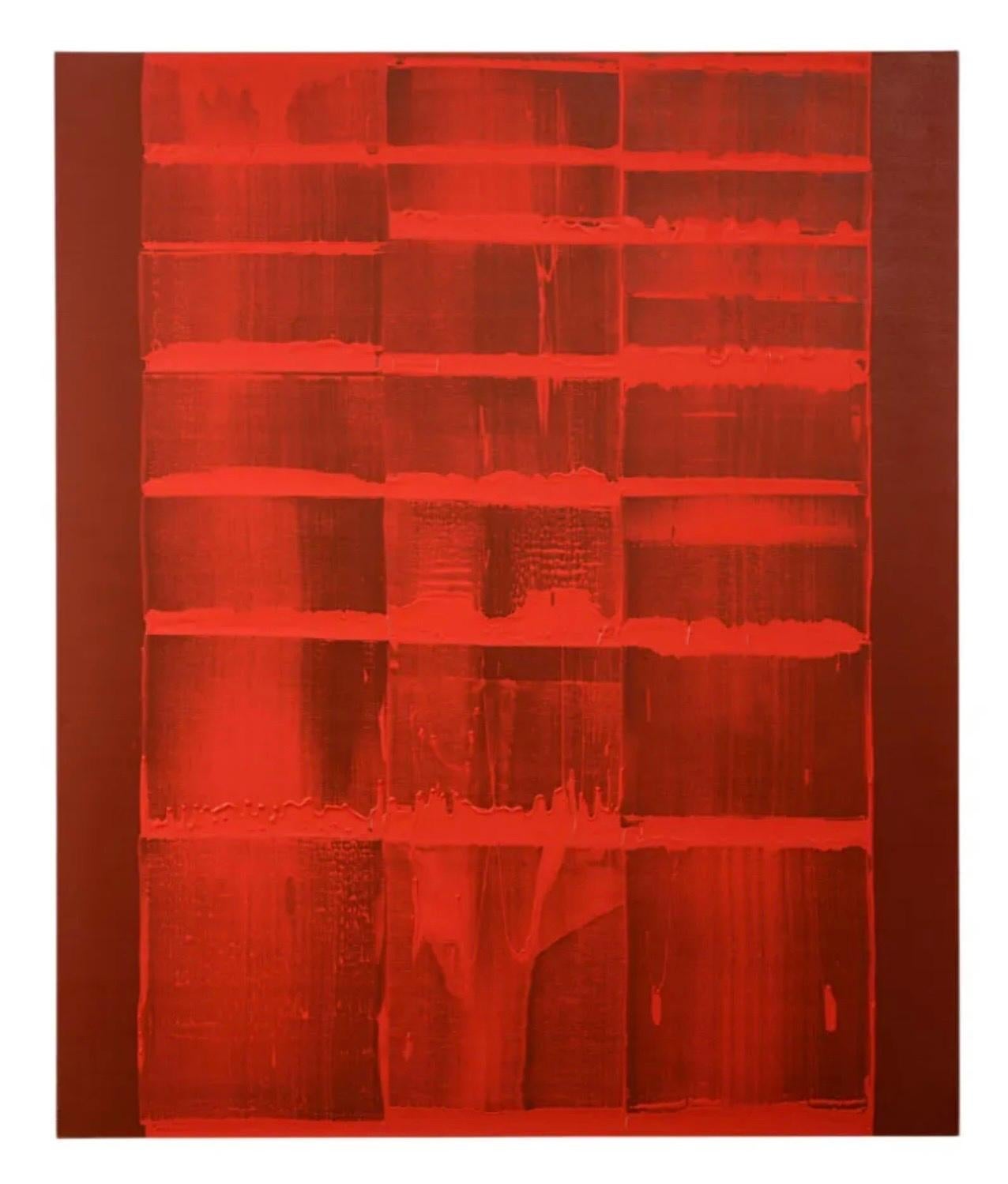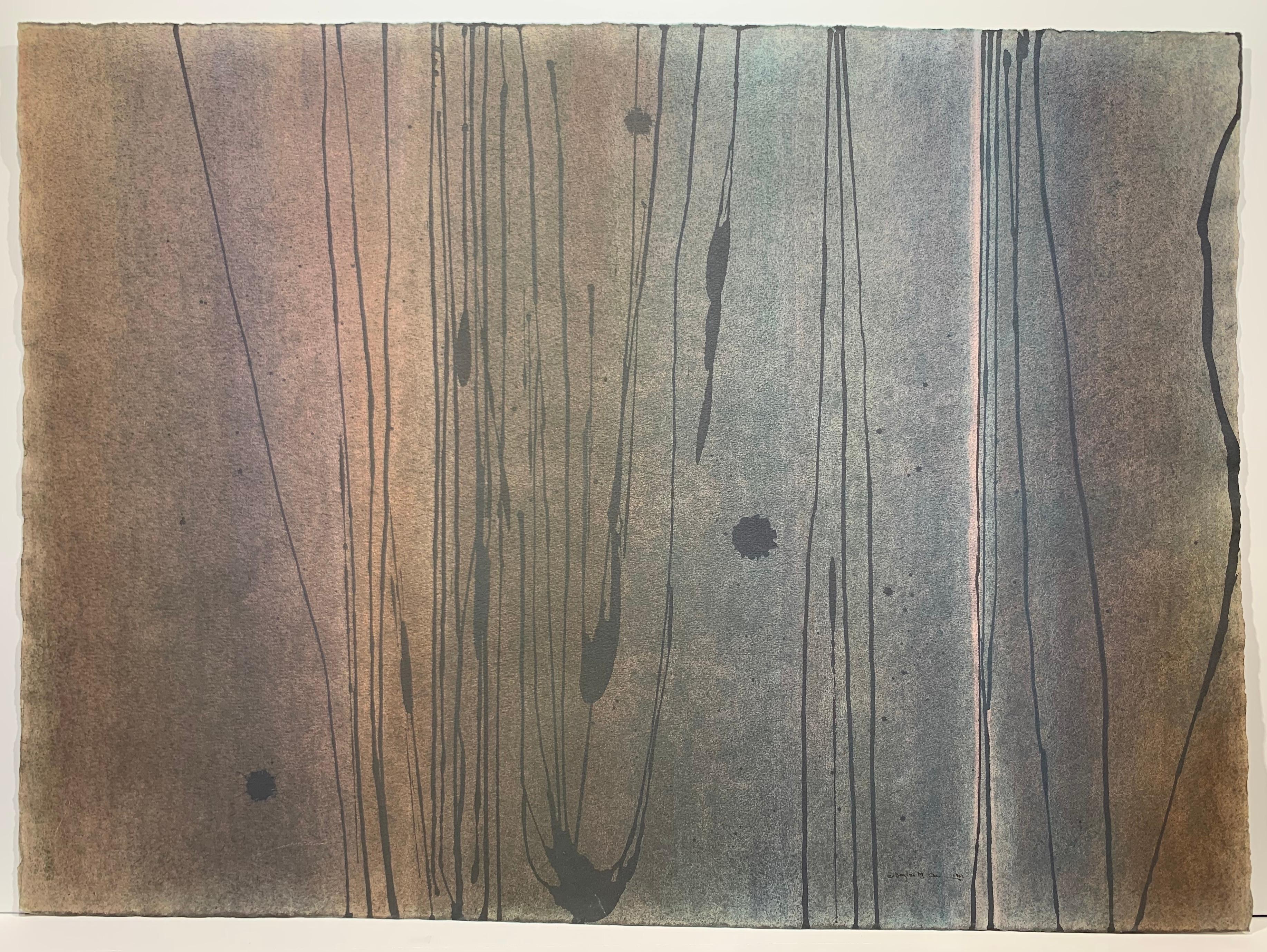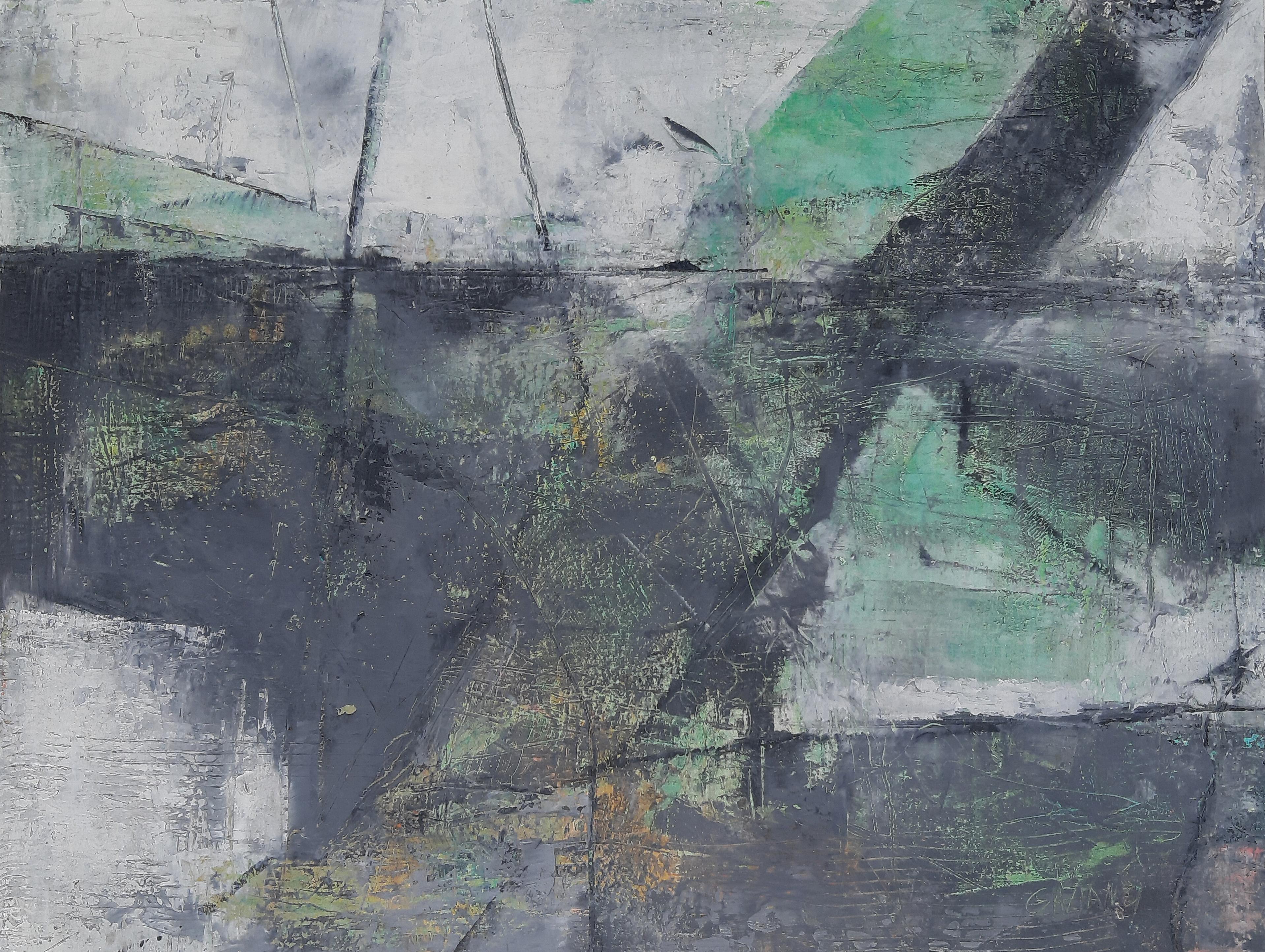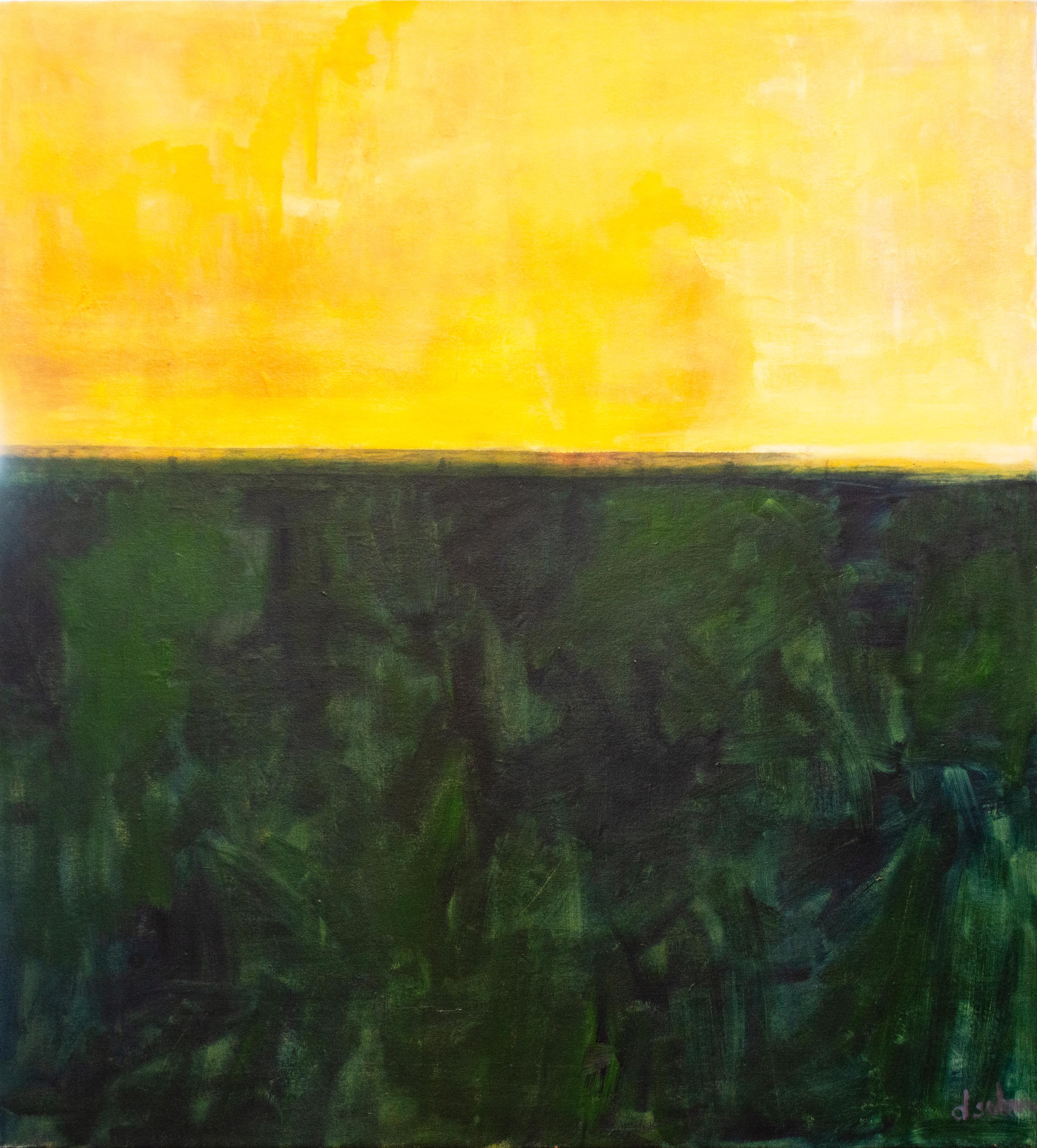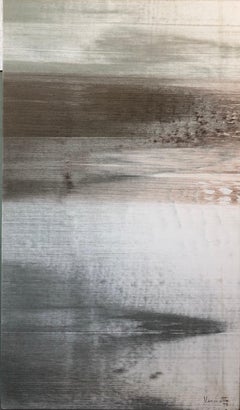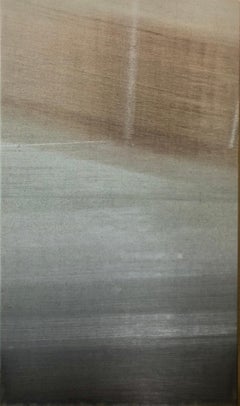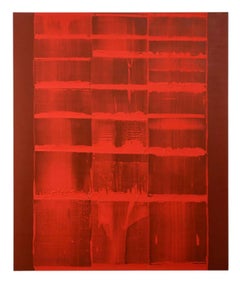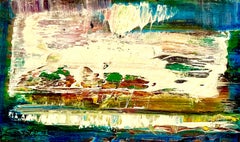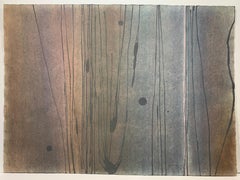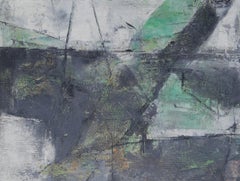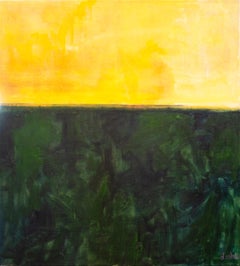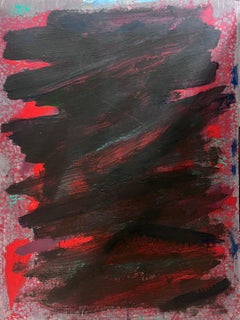Objekte ähnlich wie Abstrakt-expressionistisches Gemälde der kanadischen Moderne, Farbfeldmalerei Claude Vermette
Möchten Sie mehr Bilder oder Videos?
Zusätzliche Bilder oder Videos von dem*der Anbieter*in anfordern
1 von 13
Claude VermetteAbstrakt-expressionistisches Gemälde der kanadischen Moderne, Farbfeldmalerei Claude Vermette1994
1994
2.609,62 €
Angaben zum Objekt
Claude Vermette R.C.A. is a Canadian ceramicist and painter who was born in Montreal, Quebec, August 10, 1930 and who died in Sainte-Agathe-des-Monts, April 21, 2006. Artist of international reputation, he made important contributions to the ceramic arts in Canada
As a ceramist who worked in the architecture field, Claude Vermette is a pioneer in Québec and in Canada with regards to this type of artistic expression. The bursts of colours of his wall size mural ceramics, the warmth of their hues and the play of their textures brought a human dimension in architectural spaces that were often grey and frigid. In his abstract paintings as well as in his prints and watercolours, Claude Vermette pursued this bold approach while constantly renewing and expanding the possibilities of colour and light. His work works with gradations of color field and shifting light.
A native of Montreal, Quebec, Claude Vermette studied art under the guidance of Brother Jerome, c.s.c. at Notre-Dame College while also attending the Collège Saint-Laurent and the college of the Clercs de Saint-Viateur for his academic studies. Through his contact with Brother Jerome, he met Paul-Emile Borduas and joined the Automatiste group of emerging artists. They were influenced by Surrealism and its theory of automatism. Members included Marcel Barbeau, Roger Fauteux, Claude Gauvreau, Jean-Paul Riopelle, Pierre Gauvreau, Fernand Leduc, Jean-Paul Mousseau, Marcelle Ferron and Françoise Sullivan. He was considered too young by Borduas to sign the 1948 "Refus Global" (Global denial), but he was present at the launch of this manifesto, which was destined to become famous in Québec's contemporary history. Drawing, painting and ceramics were then his main modes of expression.
His first exhibitions in 1948, 1950 and 1952 caused him to be noticed by art critics who praised his talent and perceived the promise a bright future. In 1952, his interest in ceramics expanded during a study tour in Europe and especially in Italy where he met the architect Gio Ponti, a major player in the rebirth of modern Italian design and founder of the magazine Domus and the sculptor-ceramist Fausto Melotti. Another decisive encounter is that of the Finnish architect, Alvar Aalto.
Thereafter, Claude Vermette concentrated his efforts on architectural ceramics for which he created new forms of composition for the clay, a wider variety of modules for tiles and bricks, and new patented enamels. All these innovations resulted in much appreciation regarding the quality and sustainability of his ceramics, notably in the context of the Canadian climate and its gruelling winters. His bricks and tiles also earned him the 1962 first prize for industrial design.
In 1953, the then 23 years old artist produced his first great work in ceramics: the huge background of the main altar and the whole ceiling of the new chapel of the Seminary of Chicoutimi. There followed a career of twenty-five years as ceramist characterized by close collaboration with architects and engineers, during which he produced large works in more than a hundred public buildings, including pavilions and buildings connected to the Montreal World's Fair in 1967, at Osaka in 1970, at the 1976 Summer Olympics held in Montreal as well as in many schools, churches, courthouses (including those in Montreal, St-Hyacinthe and at Percé in the Gaspé Peninsula ), hospitals (including those of Notre-Dame and Marie-Enfant in Montréal, and Amos in Abitibi), universities (including that of Montréal, McGill, Laval and Sherbrooke), government buildings, airports (Pierre Elliott Trudeau, Mirabel and Molton), in more than a dozen Montreal subway stations (including Saint-Laurent, Peel, Berri-UQAM, Laurier) and other buildings, including those of General Motors in New York City, MacMillan Bloedel in Vancouver, Bell Canada in Toronto, Canadian National, Canadian Pacific, Texaco Canada and Quebecor to name a few more. He also created many works, such as ceramic fireplaces mantles and wall murals for private mansions. His works are also found in museums, including the Montreal Museum of Fine Arts and the Musée national des beaux-arts du Québec. Vermette authored numerous projects for the integration of art into architecture, notably at the 1967 World’s Fair in Montreal, the 1970 World’s Fair in Osaka and the 1976 Olympic Games in Montreal. His ceramic designs (murals, halls, parquet floors) can still be found in schools, churches, courthouses, hospitals, airports and office buildings (Montreal, Toronto, New York), as well as in a dozen Montreal subway stations, including Saint-Laurent, Peel, Berri-UQAM and Laurier. Vermette also explored printmaking, bronze sculptures, watercolor painting and oil painting over the course of his career. At the time of his death, he had just completed the designs for five outdoor murals at the Pavillon du Lac des Castors in Mount Royal Park. These were unveiled in January 2006.
Claude Vermette also felt the need to pursue research that initially evolved into the creation of small-scale ceramic works where he experimented with new forms, textures and glazes and later also included engravings, sculptures and especially painting. He was further distinguished by mastery in engraving, taking advantage of relief materials that linked the play of light: evidenced by its white on white prints and art book Blanc-Seeing when it operates in its many variations, the latter accompanied by texts by the poet Eugene Cloutier. These prints have inspired the realization of small sculptures.
The artist uses his experiences as game textures, reliefs and light of his prints into white concrete works, thereby making the building for the Caisse populaire Laurier in Ottawa a dozen bas-reliefs of white concrete, large and small dimensions, varying textures, thicknesses and relief printed to the material. Vermette was also interested in creating watercolor works of all sizes such as, among them, a giant mural of over 80 meters long at Bell Trinity Square Office in Toronto. Another book of art is born, Gestes de Liberté, this time in collaboration with the economist, André Raynauld. Art and science! This challenge of uniting the work of a painter and that of an economist is reflected in the execution of this book which includes an abstract watercolor where dominate color and movement and a series of nine articles on the theme of freedom.
In the last thirty years of his life, Claude Vermette devoted most of his activity to painting. His works has been exhibited in Canada and abroad and is represented in the collections of public institutions, large corporations as well as private collections.
At the time of his death, he had just finished replacing the five exterior aluminium enameled murals he had created for the walls of the Beaver Lake Pavilion on Mount-Royal in Montréal, which were initially made in ceramic in 1958 and were unfortunately victims of demolition. This historic pavilion was renovated by the City of Montreal and inaugurated in January 2006. To mark the quality of the achievement, the City was awarded the Orange Prize 2006 by the organization Sauvons Montreal in category Intervention heritage.
He was the husband of the artist Mariette Rousseau-Vermette, tapestry weaver who, by the aesthetic and technical qualities of the tapestries and the impressive number of monumental works, has earned an international reputation. The couple who had two children lived in Ste-Adele. Both had a professional art career that spans over a period of sixty years.
Selected commissions and collections:
Canadian National Bank, Montreal, Canada;
General Motors corporate offices, New York, New York;
Macmillan Bloedel corporate offices, Vancouver, Canada;
Hall of Justice, Montreal, Canada;
Bell Canada, Toronto, Canada;
Hoffman BMW, Bloomfield, New Jersey;
Coopers Lybrand, Montreal, Canada;
Molton International Airport; Toronto, Canada;
Laurier Bank, Ottawa, Canada;
McGill University, Montreal.
Member: Royal Canadian Academy of Arts.
- Schöpfer*in:
- Entstehungsjahr:1994
- Maße:Höhe: 78,74 cm (31 in)Breite: 45,72 cm (18 in)Tiefe: 5,08 cm (2 in)
- Medium:
- Bewegung und Stil:
- Zeitalter:
- Zustand:good. minor wear. please see photos.
- Galeriestandort:Surfside, FL
- Referenznummer:1stDibs: LU38215092702
Anbieterinformationen
4,9
Platin-Anbieter*in
Premium-Anbieter*innen mit einer Bewertung über 4,7 und 24 Stunden Reaktionszeit
Gründungsjahr 1995
1stDibs-Anbieter*in seit 2014
1.811 Verkäufe auf 1stDibs
Typische Antwortzeit: 1 Stunde
- VersandAngebot wird abgerufen …Versand von: Surfside, FL
- Rückgabebedingungen
Einige Inhalte dieser Seite wurden automatisch übersetzt. Daher kann 1stDibs nicht die Richtigkeit der Übersetzungen garantieren. Englisch ist die Standardsprache dieser Website.
Authentizitätsgarantie
Im unwahrscheinlichen Fall eines Problems mit der Echtheit eines Objekts kontaktieren Sie uns bitte innerhalb von 1 Jahr für eine volle Rückerstattung. DetailsGeld-Zurück-Garantie
Wenn Ihr Objekt nicht der Beschreibung entspricht, beim Transport beschädigt wurde oder nicht ankommt, kontaktieren Sie uns bitte innerhalb von 7 Tagen für eine vollständige Rückerstattung. DetailsStornierung innerhalb von 24 Stunden
Sie können Ihren Kauf jederzeit innerhalb von 24 Stunden stornieren, ohne jegliche Gründe dafür angeben zu müssen.Geprüfte Anbieter*innen
Unsere Anbieter*innen unterliegen strengen Dienstleistungs- und Qualitätsstandards, wodurch wir die Seriosität unserer Angebote gewährleisten können.Preisgarantie
Wenn Sie feststellen, dass ein*e Anbieter*in dasselbe Objekt anderswo zu einem niedrigeren Preis anbietet, werden wir den Preis entsprechend anpassen.Zuverlässige weltweite Lieferung
Unsere erstklassigen Versandunternehmen bieten spezielle Versandoptionen weltweit, einschließlich individueller Lieferung.Mehr von diesem*dieser Anbieter*in
Alle anzeigenAbstrakt-expressionistisches Gemälde der kanadischen Moderne, Farbfeldmalerei Claude Vermette
Von Claude Vermette
Claude Vermette R.C.A. ist ein kanadischer Keramiker und Maler, der am 10. August 1930 in Montreal, Quebec, geboren wurde und am 21. April 2006 in Sainte-Agathe-des-Monts starb. Als ...
Kategorie
1990er, Abstrakter Expressionismus, Abstrakte Gemälde
Materialien
Leinwand, Öl
Abstrakt-expressionistisches Gemälde der kanadischen Moderne, Farbfeldmalerei Claude Vermette
Von Claude Vermette
Claude Vermette R.C.A. is a Canadian ceramicist and painter who was born in Montreal, Quebec, August 10, 1930 and who died in Sainte-Agathe-des-Monts, April 21, 2006. Artist of inter...
Kategorie
1990er, Abstrakter Expressionismus, Abstrakte Gemälde
Materialien
Leinwand, Öl
Großes Ölgemälde Farbfeld, Minimalist, Abstrakter Expressionist John Zinsser
Von John Zinsser
John Zinsser
(Amerikaner, geb. 1961)
Eiserne Stadt, 1997
Öl auf Leinwand
signiert John Zinsser, betitelt und datiert (verso)
72 x 60 Zoll
In leuchtenden, kräftigen Rottönen gehalten...
Kategorie
1990er, Abstrakter Expressionismus, Abstrakte Gemälde
Materialien
Leinwand, Öl
American Vivid Abstract Expressionist Art, Ölgemälde Norman Carton, WPA-Künstler
Von Norman Carton
Norman Carton (1908 - 1980) war ein amerikanischer Künstler und Pädagoge, der für seine abstrakte expressionistische Kunst bekannt ist. Er wurde in der Ukraine im kaiserlichen Russla...
Kategorie
Mitte des 20. Jahrhunderts, Abstrakter Expressionismus, Landschaftsgemälde
Materialien
Leinwand, Öl
Abstraktes Ölgemälde der kalifornischen Moderne, Laddie John Dill
Von Laddie John Dill
Laddie John Dill (Amerikaner, geb. 1943)
Unbenannt
Ölgemälde auf Leinwand auf Paneel montiert
Handsigniert Laddie Dill (verso)
36 x 72 Zoll. (mit Rahmen 37 X 73)
Laddie John Dill wu...
Kategorie
1980er, Postmoderne, Abstrakte Gemälde
Materialien
Leinwand, Öl, Karton
Austrian Contemporary Abstract Expressionist Painting Vertical Lines of Color
Von Rudi Molacek
Rudi Molacek (österreichisch-amerikanisch, geboren 1948)
Vertical Colors, 2008, abstraktes helles Acryl auf Leinwand, signiert und datiert am oberen Rand der Leinwand, (ungerahmt): 3...
Kategorie
Anfang der 2000er, Zeitgenössisch, Abstrakte Gemälde
Materialien
Leinwand, Acryl
Das könnte Ihnen auch gefallen
#135 (Abstraktes expressionistisches Gemälde)
Von Douglas M. Olsen
Douglas M. Olsen (geb. 1960). #135, 1982. Aquarell auf Hadernpapier, 22 x 30 Zoll. Im unteren Rand und verso signiert.
Kategorie
20. Jahrhundert, Abstrakter Expressionismus, Abstrakte Gemälde
Materialien
Wasserfarbe, Hadernpapier
173 € Angebotspreis
60 % Rabatt
Abstrakt 3, Abstraktes Ölgemälde
Kommentare des Künstlers
Helle Grün- und Weißtöne kontrastieren in dieser abstrakten Komposition mit grauen Elementen. Kratzer rund um das Werk sorgen für eine leichte Textur. ...
Kategorie
21. Jahrhundert und zeitgenössisch, Abstrakt, Abstrakte Gemälde
Materialien
Öl
Abstrakte Farbfelder Öl auf Leinwand von Deirdre Schanen, „Ein Syllable“
Von Deirdre Schanen
"One Syllable" ist ein Öl auf Leinwand von Deirdre Schanen. Es werden Farbfelder nebeneinander erstellt. Ein gelber Himmel mit orangefarbenen und weißen Akzenten bildet den oberen Te...
Kategorie
2010er, Zeitgenössisch, Abstrakte Gemälde
Materialien
Leinwand, Öl
Französisches expressionistisches abstraktes Ölgemälde des 20. Jahrhunderts, Blaze of Colors
Abstrakt-expressionistische Komposition
unterzeichnet von Andre Guillou (Französisch 1925-2017)
Öl auf Karton
Brett: 25 x 19,75 Zoll
Herkunft: Nachlass des Künstlers, Frankreich
Zust...
Kategorie
Mitte des 20. Jahrhunderts, Abstrakter Expressionismus, Abstrakte Gemälde
Materialien
Öl
794 € Angebotspreis
20 % Rabatt
„Abstrakte Landschaftsserie“ 6HTJ7, Abstraktes Gemälde, 21. Jahrhundert
Von Roger König
Künstler: Roger König geb. Dessau, Deutschland (1968) Meisterschüler von Kurt Schönburg, HWK Halle, Deutschland. König kombiniert moderne Acrylmalerei mit alten Techniken und verbind...
Kategorie
2010er, Abstrakt, Landschaftsgemälde
Materialien
Ton, Acryl
Abstraktes Ölgemälde „Boundary Between“
Dieses vertikale, abstrakte Originalgemälde von Tony Iadicicco wurde mit Ölfarbe auf galerieumwickelter Leinwand gemalt. Dieses Stück zeigt drei dunkelblaue, parallele horizontale Li...
Kategorie
2010er, Abstrakt, Abstrakte Gemälde
Materialien
Leinwand, Öl
